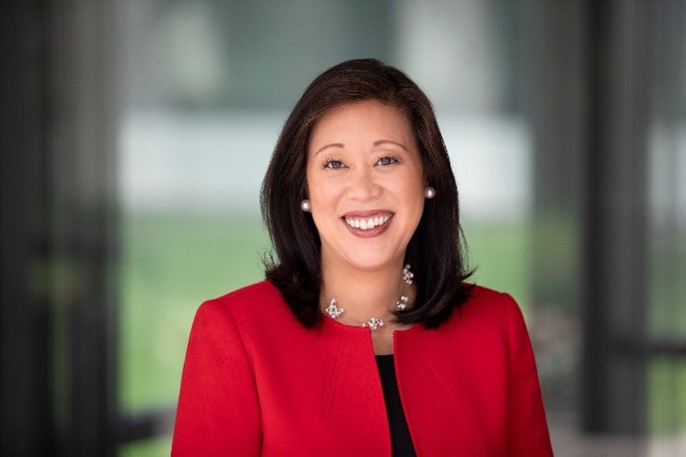The Personal Care Products Council Announces Madam C.J. Walker Award for Excellence in Diversity, Equity and Inclusion Recipients
FOR IMMEDIATE RELEASE
CONTACTS:
Lisa Powers, powersl@personalcarecouncil.org, (202) 297-1232
Stefanie Harrington, harringtons@personalcarecouncil.org, (202) 615-6558
The Personal Care Products Council Announces Madam C.J. Walker Award for Excellence in Diversity, Equity and Inclusion Recipients
Beauty Industry Recognizes Michelle Wang Goodridge, Kenvue, and Monique Rodriguez, Mielle Organics, as DEI Champions
CORAL GABLES, FLA. – The Personal Care Products Council (PCPC) is proud to announce its 2024 Madam C.J. Walker Award for Excellence in Diversity, Equity and Inclusion (DEI) recipients. The Award recognizes individuals in the beauty and personal care products industry who demonstrate an outstanding commitment to DEI through strong leadership and sustained efforts with a focus on workplace culture, program and policies, or through external engagement with consumers and communities.
Presented last night at the PCPC Annual Meeting 2024 opening reception, the selection committee awarded this distinction to entrepreneur recipient Monique Rodriguez – founder & CEO of Mielle Organics, the fastest growing Black-founded and woman-led, multicultural hair care brand – and to corporate recipient Michelle Wang Goodridge – U.S. president of Brand Growth, Kenvue – in recognition of their dedication to advance DEI.

As a Black-founded business, Mielle Organics aims to empower Black communities economically by inspiring and contributing to future entrepreneurs. More recently, in partnership with P&G, Rodriguez launched Mielle Cares, a non-profit organization that champions the mental health and wellbeing of pre-teens and teenagers by nurturing a positive and resilient mindset to help create a future they can believe in.
“I’m so honored to receive this award. Like Madam C.J. Walker, I also started our company from my kitchen, and as Mielle approaches its 10-year milestone, I am proud to reflect on our accomplishments and know that the historic things we’ve done with Mielle Organics will continue to open the door for other Black women to do the same,” said Rodriguez. “I know I have a bigger purpose, bigger than Mielle, to serve our community and our youth. I stand on the shoulders of Madam C.J. Walker and aim to continue breaking glass ceilings and setting the trajectory for Black female entrepreneurs and business leaders.”

Wang Goodridge is a trailblazer, working diligently to create inclusive work environments for Kenvue employees, and ensuring that through her work, brands are collectively advocating and investing in equitable access to everyday care for all consumers. She is widely recognized as an agent of change and serving as a beacon in the industry.
“Accepting this award is not a reflection of my efforts alone but a celebration of our collective commitment to diversity and inclusion as an industry,” said Wang Goodridge. “We must continue to take bolder steps to address inequities in care, expand access, and foster inclusive environments and solutions that will ultimately lead to better outcomes for individuals and their families. Together, we can build lasting positive change for people and communities around the world.”
The Award honors industry pioneer Madam C.J. Walker who started her hair care business at the turn of the century, during a time when women of color had few rights and little opportunity. The Award is given to individuals in the cosmetics or personal care industry. Nominees are judged on areas of achievement based on predetermined criteria and selected by the Madam Walker Selection Committee.
“Madam C.J. Walker, Elizabeth Arden and Helena Rubinstein were among the women who started this industry when nobody else was paying attention,” said A’Lelia Bundles, event mistress of ceremonies and Madam Walker’s great-great-granddaughter. “And it turns out that this is not just about products, but it is about empowering people. Making women feel confident, but also giving people economic opportunity. And that’s very much what Madam Walker was about.”
“Madam C.J. Walker was a true trailblazer and one of the greatest entrepreneurs in history. She created jobs that helped thousands of women of color achieve financial independence. She is one of the reasons we have people like Monique and Michelle leading the industry today,” said PCPC President & CEO Tom Myers.
###
Founded in 1894, the Personal Care Products Council (PCPC) is the voice and advocate for 600 member companies representing the $535.7 billion global cosmetics and personal care products industry. PCPC’s members represent approximately 90% of the U.S. beauty industry and are some of the most beloved and trusted brands in beauty and personal care today. As the manufacturers, distributors and suppliers of a diverse range of products millions of consumers rely on every day – from sunscreens, toothpaste and shampoo to moisturizer, makeup and fragrance – PCPC’s member companies are global leaders committed to product safety, quality and innovation.
For more information on cosmetics and personal care products and their ingredients, please visit www.CosmeticsInfo.org.
